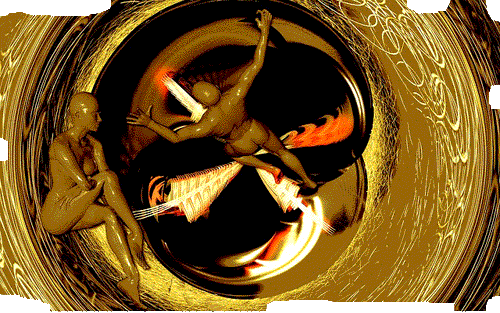Carl Jung Resources > Psychotherapy
Jung's Methods in Psychotherapy
Jung himself once said: "Thanks God I'm Jung and not Jungian."
Statement that may seem strange. But it is not. What Jung meant is that the Jungians do not understand his theories and methods, or they have no flair and do not apply his techniques properly.
Indeed, if we read the writings of his disciples, we discover an obsessive inclination to play with words and deal with Jung's concepts only on a theoretical basis.
In other words, they miss the experience, the practice. That is why it is necessary to write a few lines about Jung's analytical method. --
Jung's method follows the Freud's one, as he often admitted. In very rare cases, when the Freud's method is not sufficient, Jung would apply also a complementary method that should guide the
patient to a personal confrontation with the This confrontation aims at the assimilation of the archetypal
information leading to the extension of consciousness. This is what Jung himself calls the
individuation process aiming at directing one to the realization of the psychic wholeness.
In short, the Jungian wholeness consists in the
On the plane of the psychotherapy, this new personality is better fit to cope with the outer and inner developmental requests. Jungian psychotherapy makes use of the following techniques: Free Associations Test Dream Analysis
Active Imagination Symbol Analysis Playing, painting, building and other such activities may lead one to explore and manifest his unconscious feelings and images. In painting one may express a visual representation of the wholeness. Also in building, one may relieve his inner creative forces blocked or inhibited by his one-sided moral or ethical values. See also mandala. -- Further resources Several must-read works by Jung that illustrates his psychotherapeutic method: - The Practice of Psychotherapy
- a collection of essays related to this subject and its specific problems. -> Amazon link: https://amzn.to/4168CLy
- Two Essays on Analytical Psychology - the best introductory study to the theory and practice of Jung's psychotherapy. ->
Amazon link: |
©AROPA, 2025.
